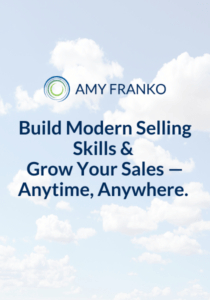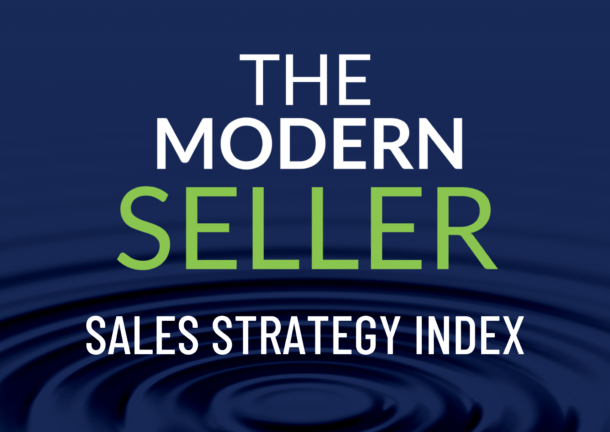"*" indicates required fields
Does your sales training include self coaching? Elevate your sales game with effective self-coaching practices. Success demands more than skill—it requires continuous growth and outside perspective. Invest in yourself with these five self-coaching practices for sales leaders.
*******
I had an executive speaking coach who had a saying that always stuck with me. “You can’t read the label from the inside of the jar.” In other words, we get in our own heads too much. Or, we need to learn something specific to get to our next level and we can’t do it solely on our own.
To reach a high level of success or significance with anything in work or in life requires outside perspective.
Consider elite athletes, sports teams, and leaders. They leverage outside perspective in a variety of forms for physical, mental, and emotional excellence. Think performance coaches, mentors, advisors, behavioral psychologists, and doctors. And statistics show that many executives who hire coaches enjoy greater companywide success and satisfaction among employees, allowing them to focus on continued improvement and giving them the ability to assess problems that they may never have considered.
There’s also a level of self-leadership and self-accountability that’s required to apply what’s learned, to reflect, and to make changes. From that perspective, you can absolutely be a “self-coach” to reach the next level.
Five Self-Coaching Practices for Sales Leaders
This article offers five “self-coaching” practices that sales leaders can use to build elite sales teams, or individual sales professionals can use to reach that next important sales goal.
1. Create an Individual Sales Plan
The sales assessment firm Objective Management Group has collected and analyzed over 30 years of data on professional sellers. Elite sellers have two specific habits that set them apart: they have a written sales plan, and that sales plan contains specific personal goals that they methodically track. Many sellers don’t create a personal sales plan beyond their sales quota letter. A personal sales plan is a foundational form of self-coaching and self-accountability, because you’re taking the commitment in your brain and putting it in writing. Learn more about the elements of effective sales planning and download your sales plan template.
2. Track Your Top Three Sales Metrics for the Half
I recently had an interaction with a sales team that was somewhat deflated by the sheer scope of metrics they were required to track. I offered up three ideas. The first idea was to decide on the top 3 most important metrics for the upcoming half. The second idea was to take back their confidence and peace of mind by focusing on the significant sales activities they could control. The third idea was to focus on progress made versus gap to fill.
What are the 3 most important metrics that you’ll commit to making progress on? Which metrics are most mission critical to your success and your significance? Figure out what those are, and you’ll naturally find the internal motivation to do the work. A secondary but equally important piece to the metrics conversation is to focus your efforts on the strategic activities that will get you there.
3. Set 90-Day Milestones for Key Sales Priorities
In sales there is much “instant gratification” required with daily activity tracking, metrics, and weekly forecasts. But the sales year can also be a long one! I cover the topic of strategic speed in The Modern Seller, based on research conducted by Forum Corporation (now part of Korn Ferry). Strategic speed helps balance both short-term and long-term priorities. Leaders and sellers can maintain momentum for the long term (and not lose focus), while also keeping short-term performance goals intact. This becomes especially important as the sales year moves along; it’s easy to lose sight of the long-term picture, especially if something urgent occurs, like a revenue shortfall, an important client lost to the competitor, or a product shortage. Setting 90-day milestones on your most important goals help you maintain your motivation: keeping the long-term picture in mind while providing the benefit of making short-term adjustments as needed.
4. Use Specific Sales Coaching for Your Team (or Yourself)
If you’ve never had a coach for yourself or your team, it’s time to consider it if you have significant goals you’re pursuing. In any of my client engagements, I include coaching and advisory as part of the experience.
When I wrote The Modern Seller, I hired a book coach. When I launched Amy Franko Associates 17 years ago, I hired a small business coach. When I added sales keynote speaking to the business, I hired a speaking coach. When I’ve aspired to other milestones in my life and work (angel investing and board governance are other examples), I’ve either hired coaches specific to the goal, or I’ve found advisors to guide me.
You can do the same for yourself and your team. For individual sellers reading this, don’t wait for your company to invest in you! Invest in yourself, you’re always your most important investment.
5. Work to a Sales Process and Sales Methodology
In my Strategic Selling Academy program, I’ve designed a 5-part sales methodology that any B2B sales professional or team can apply to accelerate sales success. Another important piece to the equation is following a sales process. Sales methodology and sales process are different but closely related.
The sales process is like a staircase. It’s a step-by-step approach to moving an opportunity through the sales pipeline. Sales methodology is like a chess match. There are a variety of things you can choose from – like strategy, tactics, and skills – to help you at any given time. They are designed to support your sales process and don’t necessarily follow a specific step-by-step pattern.
The best way to create long-term results with sales process and sales methodology are to implement them company-wide and incorporate them into your sales strategy, your technology stack, and your skill development programs.
The common thread in each of these strategies is they allow you as the sales professional or leader to take full ownership of your success. While there are no secrets or short cuts, you can accelerate your path by blending the benefits of trusted outside perspective with self-accountability to reach your most significant and motivating goals.
Could Your Sales Strategy Use Expert Perspective? Amy Franko Can Help.
Amy Franko is the leader in sales strategy and sales leadership coaching, helping you to design best-in-class sales programs that accelerate growth. To significantly improve the outcomes of your sales strategy, let’s schedule a conversation. Don’t let your competition get an advantage. Contact us to schedule a conversation with Amy.



 Our Strategic Selling signature sales training program is now available online. This online sales learning program is ideal for professional services and B2B sales. Get started with 2 free lessons.
Our Strategic Selling signature sales training program is now available online. This online sales learning program is ideal for professional services and B2B sales. Get started with 2 free lessons.